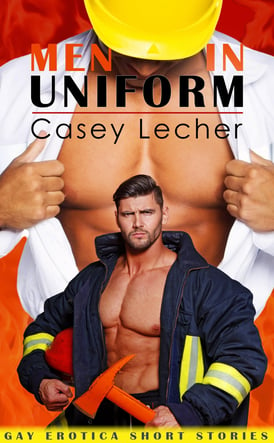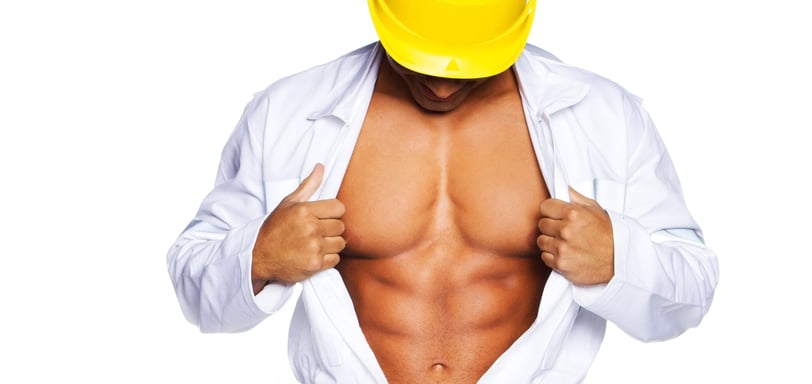

Have you ever looked at a rugged police officer, a hunky firefighter, a ripped lifeguard, or perhaps a sexy mailman, and instantly wished he’d pin you against a wall, dick you down, and call you a filthy slut? Just me? Okay, sure.
Truth is, a man in uniform is a super common fantasy that many people have. It seems to be so universal that both breeders and homos alike fetishize the idea of a butch authority figure sweeping them off their feet. Naturally, I’m fascinated by the things that turn people on. Here’s my (unprofessional) opinion about why we’re so wet and hard for military getup, corporate suits, even plumbers crack.
Human sexuality is a complex and multifaceted aspect of our existence, deeply influenced by cultural, social, and psychological factors. The sight of a man in uniform can evoke a range of reactions, from admiration to cream in your jeans, and this attraction is rooted in a combination of authority, power, and deeply ingrained gender stereotypes. The sexualization of men in uniform can also lead to a dehumanization that reduces them to mere symbols, stripping away their individuality and emotional depth. Let's explore.
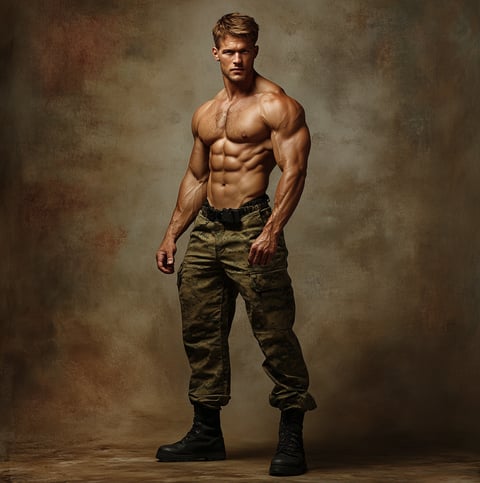

Uniforms have long been associated with authority and power. Whether it’s a police officer, firefighter, soldier— or for you sacrilegious pervs, a daddylicious priest— the uniform is a visual representation of the role these individuals play in society. It signals responsibility, discipline, and the capacity to exert control in specific situations. For many, this combination of power and control is inherently attractive. The uniform becomes a symbol of strength, security, and reliability—qualities that are often desired in a partner.
In the context of human sexuality, this attraction to power and authority is not just about physical appearance; it’s about the psychological reassurance that comes from being with someone who can take charge.
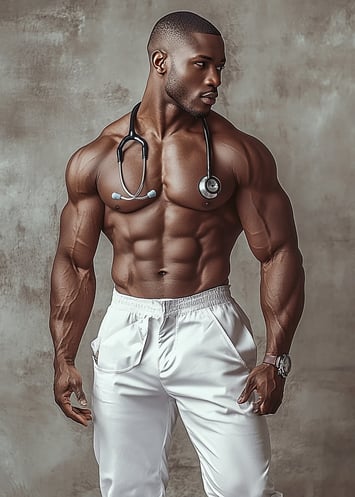

The allure of men in uniform is also deeply intertwined with traditional gender stereotypes. Men are often expected to be strong, stoic, and capable—qualities that are amplified when they don a uniform. In the gay community, this expectation is placed onto Tops, or the guy who takes the active role in the bedroom. These stereotypes reinforce the idea that men should be protectors and providers, roles that uniforms visually and symbolically emphasize.
In a sexualized context, uniforms can accentuate these qualities to the point where the man beneath the uniform is overshadowed by the image he projects. The uniform becomes a fetishized object, representing an idealized version of masculinity that aligns with societal expectations. This can lead to the eroticization of the uniform itself, where the appeal is less about the individual wearing it and more about what the uniform represents—power, control, and the fulfillment of traditional masculine roles.
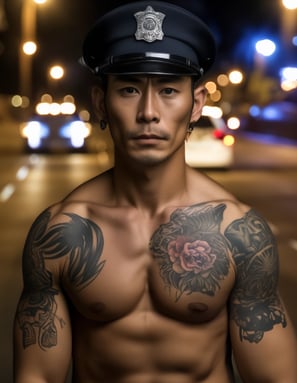

Don’t get soft on me. It’s perfectly normal to explore fantasies involving men in uniform. Fantasies that involve power dynamics, such as dominance and submission, are a normal part of human freak-doing. When acted out with mutual consent and respect, these fantasies can be fulfilling and enriching for both partners. The key is to ensure that such explorations are rooted in consent and a reverence for the individual in the uniform, recognizing their humanity and personal agency.
In the bedroom, exploring these dynamics can be a way for partners to connect on a deeper level, allowing them to explore different facets of their personalities and desires. However, it’s crucial that these fantasies remain consensual and are approached with care, ensuring that both partners feel safe and respected. In other words, don’t be a douche.
In celebrating the attractiveness of men in uniform, we should strive to see beyond the uniform and appreciate the individual beneath it. By acknowledging the full spectrum of male sexuality and emotional expression, we can move towards a more inclusive and humane understanding of attraction—one that values men for who they are, not just for the roles they fulfill or the symbols they wear. And in exploring fantasies, we can do so with a balance of excitement and respect, ensuring that the person in the uniform is honored, not just the uniform itself.
Explore this Fetish!
Want to delve into the sexy allure of men in uniform? Check out my gay erotica featuring pornographic short stories about horny soldiers, lifeguards, firefighters, cops, and more! I promise this ebook will give you many orgasms.
Click here for more details and to download your copy now. Enjoy your nut!
The Symbolism of Uniforms: Power and Authority
This dynamic taps into primal instincts related to protection and survival, where the figure in uniform embodies the ideal protector. I’m assuming this has something to do with the feral, animal part of our brains.
When you recognize that humans are primates, and that our DNA is so similar to other species like Bonobos and Chimpanzees, these fantasies become more understandable. For example, male gorillas have adapted to be huge in size and intimidating in appearance (even though they’re gentle giants) because females want assurance that their offspring will be protected from predators if they choose to get their freak on with them. It seems only natural that humans would have the same instinct, just wrapped up in cultural bullshit.
Gender Stereotypes and the Sexualization of Men in Uniform
Healthy Exploration of Fantasies
The Dehumanization of Men in Uniform
While the sexualization of men in uniform can be empowering in some contexts, it also carries the risk of dehumanization. When a man in uniform is reduced to a symbol of authority and power, his individuality is often overlooked. He becomes an archetype rather than a person, valued for his adherence to societal norms rather than his unique personality and emotions.
This dehumanization becomes problematic outside the bedroom, where societal expectations can pressure men to constantly embody the traits associated with uniforms—stoicism, control, and emotional restraint. When men are always expected to be emotionless and in control, it can lead to harmful stereotypes that discourage them from expressing vulnerability or seeking emotional support.
The focus on the uniform as a symbol of power can overshadow the human aspects of the individual wearing it. Men in uniform may be seen as invulnerable or unfeeling, which can perpetuate unrealistic expectations and diminish their capacity for emotional connection. This not only affects how others perceive them but also how they perceive themselves, leading to potential issues with identity and self-worth. (AKA, toxic masculinity. Gross.)
Beyond the Uniform
The attraction to men in uniform is a reflection of deep-seated cultural and psychological factors, rooted in our perceptions of power, authority, and traditional gender roles. While this allure can be powerful, it’s important to recognize the potential for dehumanization when men in uniform are reduced to mere symbols of these qualities.


